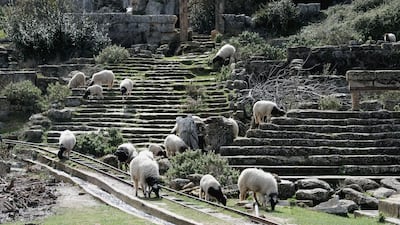Libya's parliament plans to convene next week for a vote to confirm a new interim government even though the current administration refuses hand over power.
The standoff threatens to plunge country back into conflict a year after a unity government was formed in Tripoli and two months after a scheduled election was cancelled amid disputes.
On Thursday, Libya's former interior minister Fathi Bashagha, the man designated by the parliament to form the new government, said he was ready to propose a Cabinet. The chamber's spokesman said a session would be held on Monday.
However, interim Prime Minister Abdul Hamid Dbeibah, who took office through a UN-backed process, has said he will only hand over power after elections and revealed this week that he plans to hold a nationwide vote in the summer.
Libya's parliament has accused Mr Dbeibah of corruption and said his term expired on December 24 when the election was meant to happen.
Mr Dbeibah denies this and said the parliament is itself no longer valid, eight years after it was elected.
Although the parliament also said it plans to hold a referendum on a new, temporary constitution, and elections after that, few analysts expect a national vote any time soon.
Could political crisis trigger clashes?
The tussle between Libya's rival political institutions now threatens to thrust the country back into conflict after the last major bout of fighting ended in 2020.
Armed factions have mobilised in the capital, Tripoli, in recent weeks, and analysts have said the political crisis could trigger clashes, with potential knock-on effects felt across the country.
Libya was embroiled in a civil war after dictator Muammar Qaddafi was toppled and killed in a Nato-backed uprising in 2011. The country has been split since the last national election in 2014, with two administrations — one in Tripoli and the other in the east.
Qaddafi’s son Saif Al Islam was among those who registered to run in the December presidential election.
Speculation on whether a new conflict could take place along the same lines as the previous one remains unclear. The crisis comes at a time when Libyan political factions and armed groups have reconfigured their ties with past enemies and allies alike.





